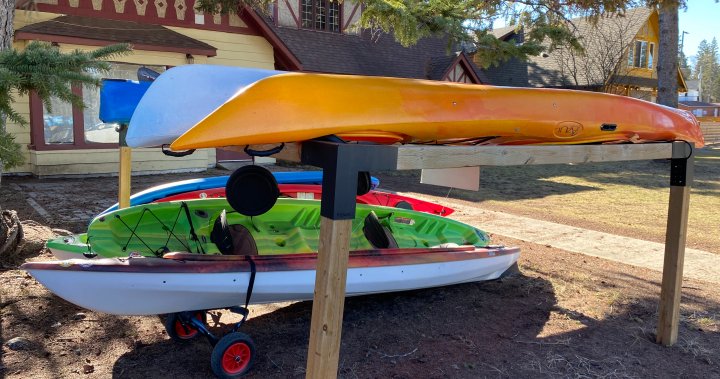The spread of zebra mussels, an invasive species in Canada, threatens boating season in Riding Mountain National Park as they were discovered at Clear Lake last November, marking the furthest west they have been found in the country. While water testing did not detect zebra mussel DNA in most of the lake, there are concerns that they may still be present. Many residents and business owners in the area are calling for increased prevention and monitoring measures, such as checkpoints and decontamination stations, to prevent the spread of the invasive species. There are discussions about a potential ban on boats, canoes, and kayaks on Clear Lake to combat the zebra mussels, although some believe that a long-term solution should be pursued instead.
Potential plans for a complete watercraft ban on Clear Lake have sparked controversy, with some arguing that it could harm tourism, the local economy, and the enjoyment of the national park. Manitoba Natural Resources Minister Jamie Moses has voiced concerns about the potential ban and its impact on the area. Parks Canada has engaged with various stakeholders, including First Nations leaders, local businesses, anglers, and environmental NGOs, to discuss the issue. Indigenous tourism operators, like Ashley Smith of the Gambler First Nation, are calling for more direct communication and consultation with Parks Canada to ensure that their interests are considered.
The arrival of zebra mussels in Canadian waters in the late 1980s has had devastating effects on ecosystems and native species. Scott Higgins, a scientist with expertise in zebra mussels, explains that they originated from the Black Sea and quickly spread through waterways in northeastern U.S. before reaching Canada. Once zebra mussels are established in an ecosystem, they can be difficult to contain and eradicate. The recommendation is to limit or restrict boats in the affected area until the mussels have been treated and eradicated to prevent further spread.
Parks Canada is considering various options to combat the threat of zebra mussels, including the possibility of a ban on watercraft at Clear Lake. The decision has sparked concerns among residents, business owners, and Indigenous tourism operators in the area. There are calls for long-term solutions to prevent the spread of invasive species and protect the environment. Education, prevention, and monitoring measures are seen as critical components in the fight against zebra mussels and other invasive species in Canadian waters.
The potential ban on watercraft at Clear Lake has raised questions about its impact on tourism, the local economy, and the enjoyment of the national park. While some believe that a short-term ban may be necessary to eradicate the zebra mussels, others are advocating for more sustainable and effective solutions. Collaboration between Parks Canada, government officials, Indigenous communities, and other stakeholders is essential to address the threat of zebra mussels and protect Canada’s waterways. Finding a balance between conservation efforts and recreational activities is crucial in preserving the natural beauty and biodiversity of areas like Riding Mountain National Park.


